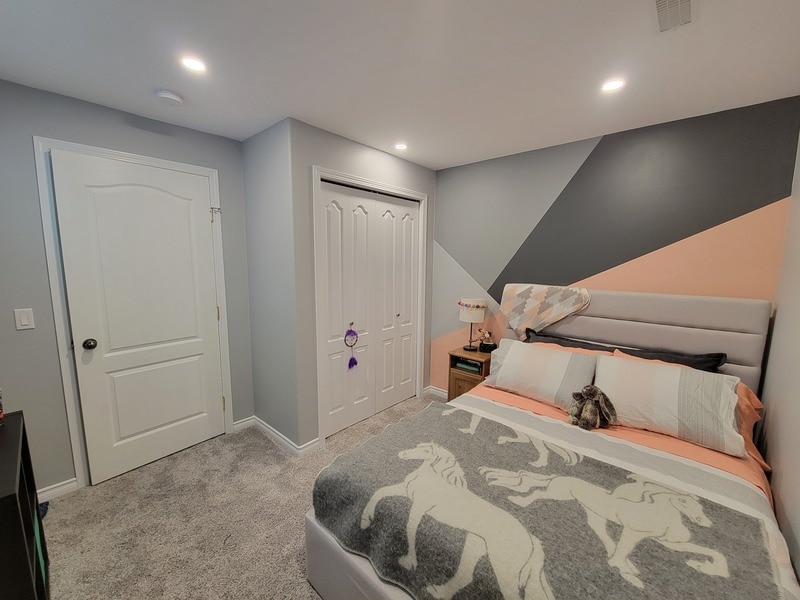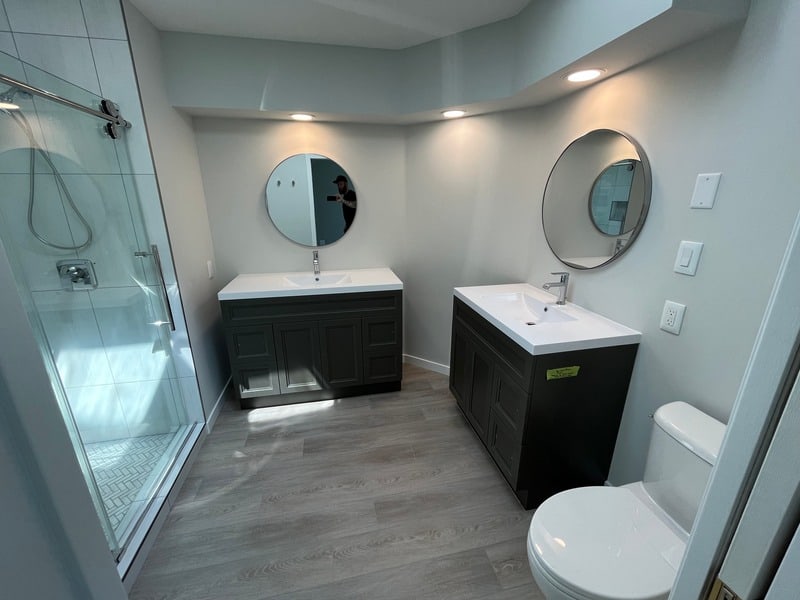Last week, I had a conversation with a potential client,
They have a pretty extensive project coming up that they need done in a fairly tight timeline. Extent of the renovation included, changing a garage into a functioning interior space for the home, renovating a bathroom, HVAC changes, a wet bar, fireplace, new windows and exterior doors changes to the exterior of their home and a few more items. This is the kind of project that we always recommend getting a General Contractor for. When a renovation spans multiple areas of a home, multiple trades and scopes It is always in the clients best interest to have one point person for the whole project that they interact with, it ensures everyone is working together effectively, prevents problems and give the client a better experience, it also gives them better insurance coverage as one person is now the main insurer for the project.

I did a walkthrough and got a good idea of the clients ideas, desires, wants and needs.
From this information we can provide a rough estimate on the project. From there we move into the design and quote phase, where we work through the details, have trades, do walk-throughs, identify issues and potential problems, work on solutions, specify products and finishes.
I put together my estimate and sent it off. Shortly after they responded that they were meeting with 5 other contractors to get quotes.
For as long as I have been in the industry and even going back before that I can remember people saying “make sure you get multiple quotes,” and for the most part I agree with this.
But…. and there is a GIANT BUT, the client has to understand a few things. First at this point in the process, no one, I repeat no one will be able to give you a quote. There are too many gaps in the information, they weren’t sure if they wanted 2 or 3 new exterior windows. They didn’t know the exact location of the wet bar, they have asbestos in their basement and didn’t know if they wanted to take care of that or have the contractor do it, they didnt know if they wanted to update all the plumbing and electrical in their 50 year old home or not while the drywall was removed. At this point their best hope was an estimate, which is really just a best educated(we hope) guess by a contractor.
No contractor of the 6 contractors they would be meeting with will get the same information, same items to quote on or the same scope of work. So the estimates won’t even be able to be compared to each other.
What they can get from this is, is this a 50-70k project or a 80-100k project, they will be able to determine a consensus on where the project should fall roughly plus or minus 20% – 30%. For sure one of the contractors will come in to this project and say they can do it for 30k, this is the contractor they should 100% not go with.
The other thing that will take place is a couple of the contractors will start low and when they go into the project they will start calculating costs and the project will grow, you will have a few contractors that will be in the middle and a contractor or two who will give a more realistic budget based on the dozens of projects just like this that they have actually completed and tracked costs on. We track costs on every single project we do, for just this reason.

In construction the construction costs of a project are going to be roughly the same, that’s the electrical line installation, the PEX replacements, the demolition and framing. Usually the biggest variance will be in the finishings chosen by the client. Respectable contractors all charge roughly the same rates, with the same markups and overhead costs. This is because to be competitive we need to align ourselves with some industry standards. So whether a client gets a high or low estimate the end quote is going to vary by maybe a few percent.
The most a person would need is 3 estimates to get a rough idea of cost and if the client is looking at reputable contractors usually 2 will suffice to get you close to the construction value of a project.
What serve the client the most in a situation like this, is to speak with the contractor about their systems, their insurance, their communications, their past projects, what potential problems the contractor sees. And be looking at their professionalism and knowledge about projects like this. The contractor that ticks those boxes is the contractor that is going to walk them through a process with the least surprises, least impact on their lives, and least amount of stress.
Clients should not pick a contractor on price, with few exceptions being very straightforward items like replacing something in the home or doing some simple maintenance, but on a project with multiple trades, and scopes. The contractor won’t be able to get you accurate pricing without consulting plumbers, electricians, flooring contractors, drywall installers, asbestos abatement, excavator, siding/stucco installer, window and door suppliers, cabinetry suppliers, HVAC technicians, finishing carpenters and framers.
In a situation like this the price point given from an initial walkthrough is roughly 10% of the equation … were they in line or out to lunch?
This is the time to go through the important questions to ask your contractor, which you can find here https://okanagancontractors.com/all-successful-projects-start-in-the-same-place/
This is the time to determine if this is a person you think you can work with, someone you want in your home for several months or is this someone you think you could trust?
Yes, price matters, but asking the right questions to a contractor to help determine if they can be trusted is what should really matter to a homeowner who wants to protect their investment and their homes and save themselves from becoming that “friend” their friends tell horror stories about.